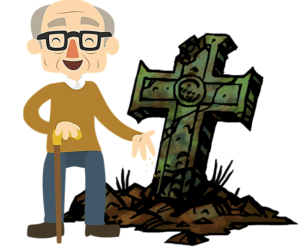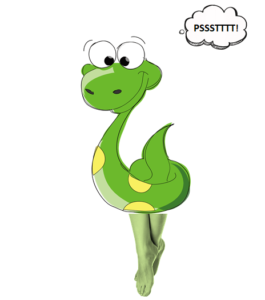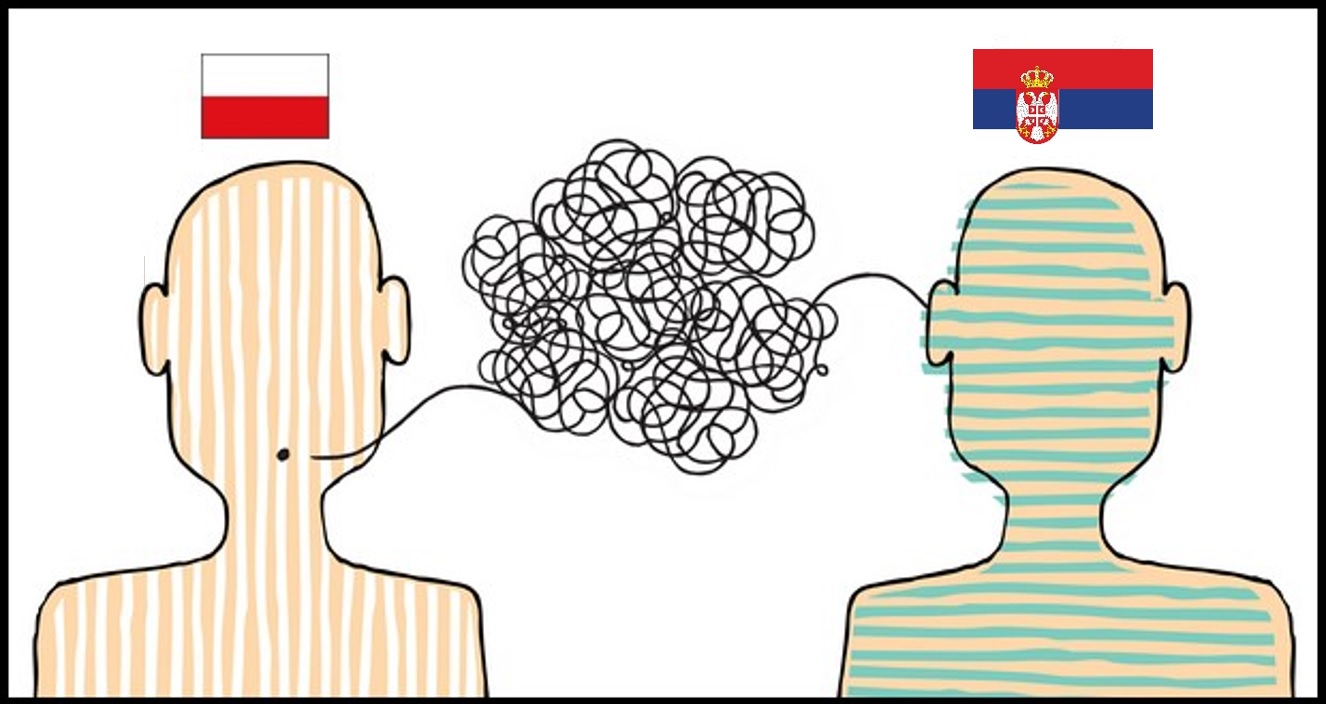If you want to talk about love in Serbian, chances are you got a crush on a Serb. Learn words related to love with their witty etymology, and useful love phrases in Serbian.
Feet Speech: 8 Serbian Leg Idioms for English and Norweigian Speakers
Feet Speech:
9 Serbian Leg Idioms for English and Norweigian Speakers
Did you know that many Serbian leg idioms are actually the same in English and Norweigian? There are similarities, even though Serbian, Norwegian and English belong to different language groups. That was a surprise for me too!
Expressions that include a part of the body are found in all languages of the world. In this article, we will talk about expressions that contain the words “leg (noga/ben)” or “foot (stopalo/fot)”.
Idioms are often universal in many languages, but not always. Difficulties in understanding them may arise due to cultural and traditional differences. Learning idioms is very interesting and important because we use them spontaneously all the time. They have become an important part of everyday speech. And we can’t always understand their meaning even if we understand all the words literally. Their use, meaning and form often depend on the context and situation.
Let us now take a closer look at the most frequently used Serbian leg idioms, and compare them with their English and Norwegian counterparts, if there are. Through some examples, I will try to show you their fantastic world.
Serbian Leg Idioms, part 1: Similar expressions in English and Norweigian
Let us first take a look at 4 idioms that look the same in the three languages. Speakers of Norwegian and English who learn Serbian and vice versa, will not have much difficulty understanding the meaning of the folowing idioms.
Serbian Leg Idiom #1: “Stajati na svojim nogama”
If someone is independent and doesn’t want any help, we say: stoji na svojim nogama. The same expression appears in English (to stand on your own feet) and Norwegian (å stå på egne bein).
- Ja stojim na svojim nogama, i neću tražiti ničiju pomoć.
I stand on my own two feet, and I will not ask for anyone’s help.
Serbian Leg Idiom #2: “Biti jednom nogom u grobu”
At first glance, this is an odd idiom, but its meaning (to be very old/dying) is the same as that in the English (have one foot in the grave) and Norwegian (å stå med det ene beinet i graven) equivalents.
- Moj deda je star čovek. Često za sebe kaže da je jednom nogom u grobu.
My grandfather is an old man. He often says that he has one foot in the grave.

Serbian Leg Idiom #3: “Stajati sa obe noge na zemlji”
If you want to say that someone is very realistic and practical, you can use the idiom “stajati/biti sa obe noge na zemlji”, or in English (to have both feet on the ground) and Norwegian (å ha begge beina på jorda).
- Ana je sanjar, ali njen muž je čovek sa obe noge na zemlji.
Ana is a dreamer, but her husband is a man with both feet on the ground.
Serbian Leg Idiom #4: “Stati nekome na žulj“
This idiom (to step on someone’s blister) in Serbian doesn’t mention legs or feet, but blister (*žulj/blister/blemme). However, it’s similar to the English “to step on someone’s toes and Norwegian “å tråkke noen på tærne“.
The meaning is to upset someone by touching their vulnerability.
- Ceo dan je bila ljuta na mene, kao sam joj stao na žulj.
She was angry with me all day, as if I stepped on her blister.
TABLE 1 – Serbian leg idioms and their equivalents in English and Norwegian
| Serbian (srpski/serbisk) | English (engleski/engelsk) | Norwegian (norveški/norsk) |
| Stajati na svojim nogama | To stand on your own two feet | Å stå på egne bein |
| Biti jednom nogom u grobu | To have one foot in the grave | Å stå med det enen beinet i graven |
| Biti sa obe noge na zemlji | To be with both with on the ground | å ha begge beina på jorda |
| Stati nekome na žulj | To step on someone’s toes | Å tråkke noen på tærne |

Serbian Leg Idioms, part 2: Authentic Expressions
In addition to idioms in which the meaning and form are the same or very similar, there are, of course, those that are specific in the Serbian language. When I say “specific”, I mean that it is often difficult to find their equivalent in another language. But, learning them is interesting and a kind of adventure.
Serbian Leg Idiom #5: “Biti bogu iza nogu”
If something is behind God’s feet (“Bogu iza nogu”), it does not mean that someone is non-religious, but that something is very far away. Interesting, isn’t it?
- Ovaj grad se nalazi bogu iza nogu.
This city is so far away.
Serbian Leg Idiom #6: “Kriti nešto kao zmija noge“
Do you like snakes? Well, the next idiom (“kriti nešto kao zmija noge“) compares you to them in some way. Don’t immediately think that someone has offended you. This idiom means that we hide the secret very carefully so that something is not revealed.
- Moj brat Marko ima devojku. On krije njeno ime kao zmija noge.
My brother has a girlfriend. He hides her name very carefully.

Serbian Leg Idiom #7: “Odsekle su mi se noge“
Speaking of snakes, do you like watching horror movies? If you like, your “legs must have been cut off” many times. Of course, not literally. In the Serbian language, when we want to say that we are very scared, we use the idiom “odsekle su mi se noge”.
- Dok sam vozio auto, pešak je izleteo na ulicu. Odsekle su mi se noge zbog toga.
While I was driving the car, a pedestrian flew out into the street. I was scared because of that.
Serbian Leg Idiom #8: “Stajati na staklenim nogama”
You heard someone say “stajati na staklenim nogama (to stand on glass legs)”? No, it’s not about Cinderella (Pepeljuga). The meaning is very simple – to be without support, to feel unstable.
- Njihov brak je na staklenim nogama. Oni se stalno svađaju.
Their marriage is very unstable. They are constantly arguing.
Serbian Leg Idiom #9: “Od malih nogu”
In Serbia, you will most often hear the expression “od malih nogu”, which means from an early age. We use this phrase every day.
- Milan je tvrdoglav od malih nogu.
Milan has been stubborn since he was little.
TABLE 2 – Serbian leg idioms with literal translation into English and Norwegian
|
Serbian (srpski/ serbisk) |
English (engleski/ engelsk) |
Norsk (norveški/norwegian) |
|
Biti bogu iza nogu |
To be behind gods feet |
Å være bak guds føtter |
|
Kriti nešto kao zmija noge |
To hide something like a snake hiding its legs |
Å skjule noe som en slange som gjemmer bena |
|
Odsekle su mi se noge |
My legs have been cut off |
Bena mine var kuttet av |
|
Stajati na staklenim nogama |
To stand on glass legs |
Å stå på glassben |
|
Od malih nogu |
From a small legs/feet |
Fra små føtter |

This article was about the Serbian leg idioms, some with their equivalents in Norwegian and English. In the 1st part of the article, there are idioms that have the same meaning and similar form. In the 2nd part, there are those that ar not easy translate and understand.
Of course, the body idioms often appear in one language, while in another language the same idiom contains no words related to body.
We can conclude that there are great similarities between these three languages at the level of phraseology, although they belong to different language groups. This makes it much easier for anyone who wants to learn Serbian.
Fun Fact: Leg for Foot!
Did you know? In everyday Serbian, we often use the word “noga” (leg) instead of “stopalo” (foot). That is, “noga” can mean both leg and foot.
In English and Norwegian, this difference is clearly defined.
We use the word “stopalo” more as a technical term, when we need to be precise. So don’t be surprised if a Serb uses the word “leg” instead of “foot” when speaking English!
Guest post by Vladimir Jakovljević
Guest Post
by Vladimir Jakovljević
Graduate professor of Norwegian and Master of Serbian as a foreign language.
Fluent in English and Norwegian, knowledgable about Sweedish, Spanish, Macedonian and French.
Loves books, poetry, photography, science fiction and fictional languages.

Serbonika
Najbolja metoda za učenje srpskog jezika
The best method to learn Serbian
Talk about Love in Serbian: 15 Ready-to-use Serbian Love Phrases
How similar are Serbian and Croatian? 7 Biggest Differences
Many people wonder if Serbian and Croatian are the same language. If not, how different are they? And what’s the difference? How they relate to Bosnian and Montenegrin? Which one you should learn?
Hot Serbian Summer: 8 things to survive the heat in Serbia
Serbian summer is short, but hot. One month is scalding hot. There are 8 things that will help you survive the heat of the Serbian summer, and actually enjoy it.
Ordering Food in Serbian: Practical Tips to Sound Like a Native
Don’t go to another Serbian restaurant without reading these practical tips about ordering food in Serbian like a native! Avoid “the textbook trap” and stop sounding weird!






